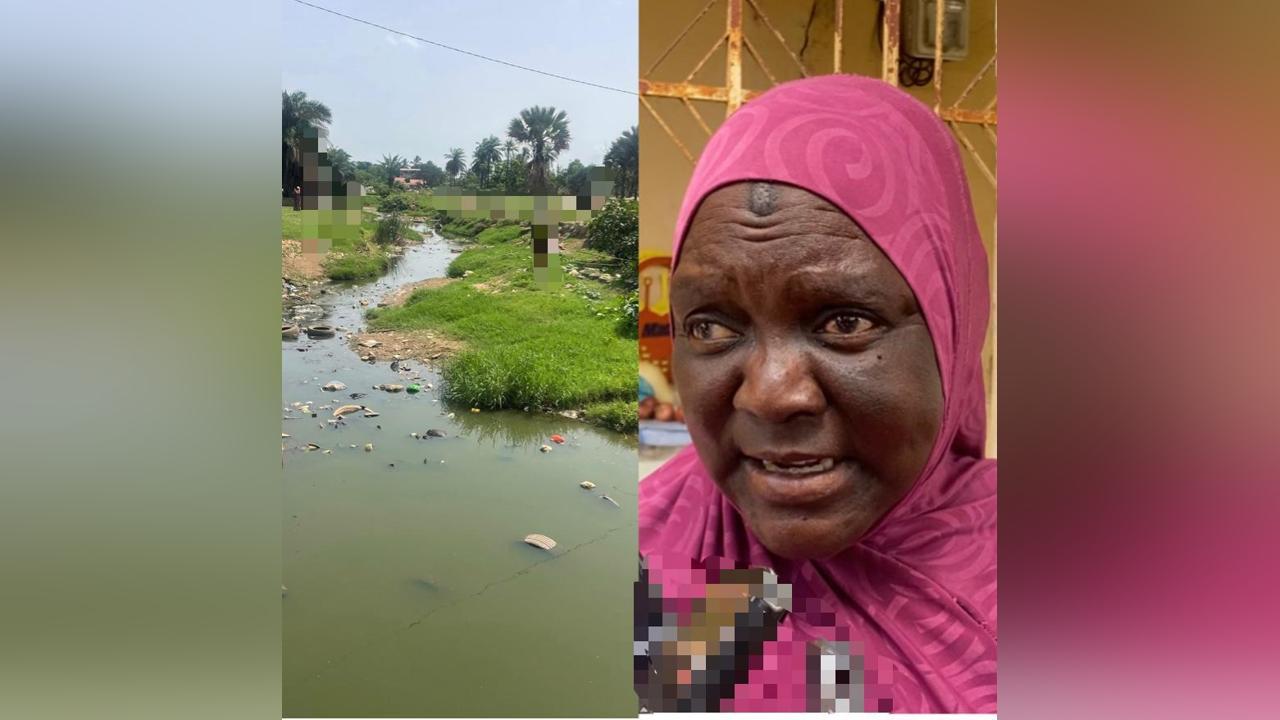Africa-Press – Gambia. Each rainy season, the community of Dippa Kunda braces for the inevitable flooding that sweeps through homes disrupts livelihoods and endangers health.
As the seasonal rains pour and gladdens the heart of farmers, residents of Dippa Kunda are trapped in a cycle of exhaustion frustration and uncertainty.
Kaddy Kaluga a longstanding resident expressed pain saying: “We feel comfortable only during the dry season. When the rains start, we begin to worry. Flooding has repeatedly spoiled my batik fabrics, damaged my ID card, and ruined food supplies. When water enters the house, it looks just like outside,”
Kaluga strongly believes the flood is caused by the location of the stream that flows through the Dippa Kunda Community. She noted that “In the past, the water flowed freely. Now it comes back into our homes. The stream has become polluted. Children still play there, even those not from here. But the water is dirty and unsafe. Mosquitoes make evenings uncomfortable. At night, you must burn incense, or you won’t be comfortable,” she lamented
Notwithstanding these difficulties, she is unwilling to relocate stressing that “As Serehules, we like to live close together. If you move far, they forget you unless you come back.”
Kaluga is calling on relevant bodies to assist their community rather than relocating them.
Mamat Jallow who also lives in the community echoed concerns “If I had another place, I would leave. The area is a junction where streams meet, making it flood easily. We built a small concrete fence because of the water. When it rains, the water rises to full capacity. Flooding also blocks roads and increases malaria risk. I just finished a round of malaria treatment last week,”.
Jallow also pointed to illegal dumping into the stream often done at night worsens flooding by sending waste into homes.
Authorities are aware of the situation Haruna Cham, Social Development Specialist for the West Africa Coastal Areas (WACA) project said both long and short -term measure are underway to address the crisis “We are working with the NEA, and we do monthly environmental monitoring not only monitoring but also enforcement. When we identify illegal sewage connections coming from households, we go to those places and hold the responsible people accountable,” Cham explained.
He also outlined “Major civil works are also planned under the project’s physical investment component. This includes replacing makeshift community bridges with sturdier structures to improve connectivity between the two banks. We also plan to develop green parks so that children and even adults can have spaces to relax.”
According to Cham, a feasibility study and environmental risk assessment have already been completed. Final designs for the stream’s redevelopment are expected soon, with civil construction works anticipated to begin by 2026.
Beyond infrastructure, Cham said the project plans to support livelihood initiatives this year, targeting about 4,000 residents. “The livelihood options are in two forms. We have the green initiatives, which include nature-based solutions and urban agriculture, and the non-green initiatives like recycling plastics, metals, and producing compost that could help women farmers,” he said.
For More News And Analysis About Gambia Follow Africa-Press






